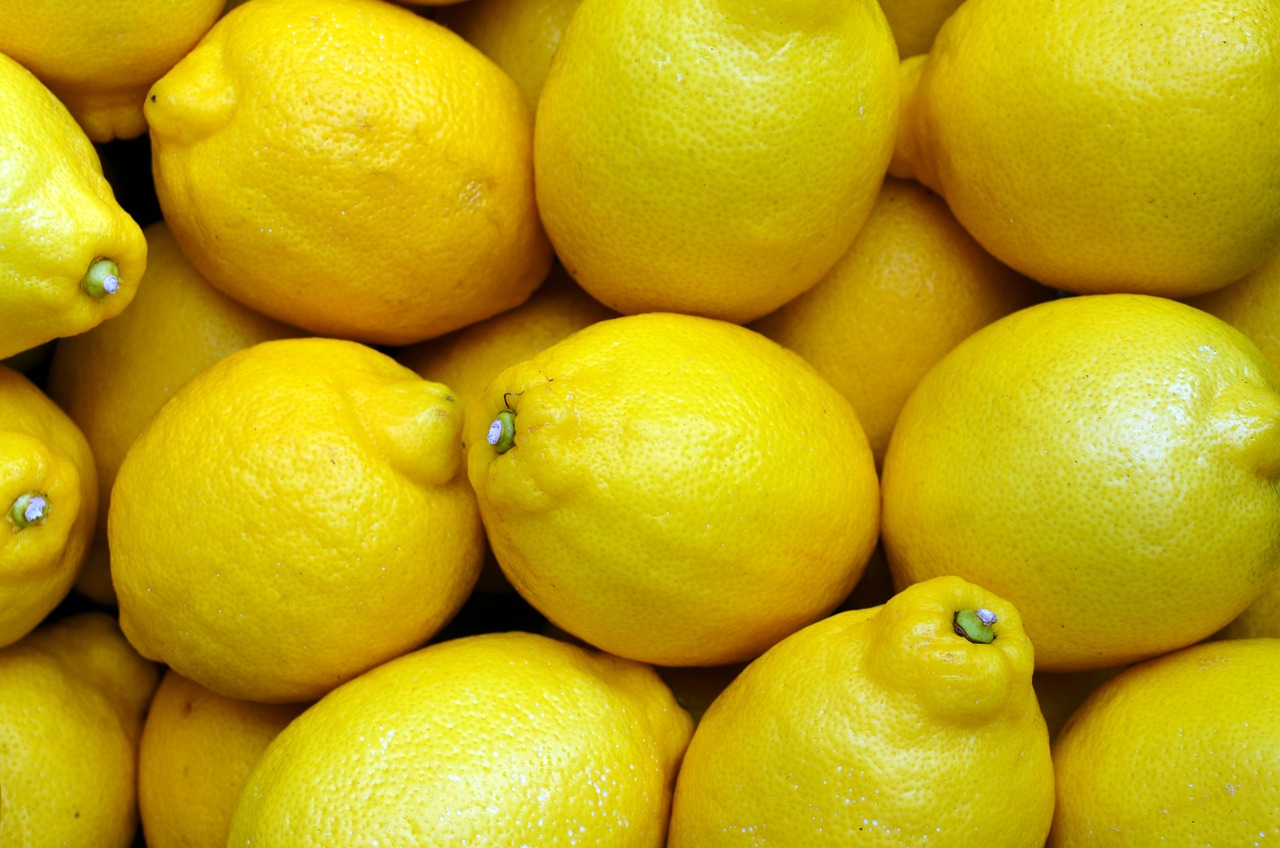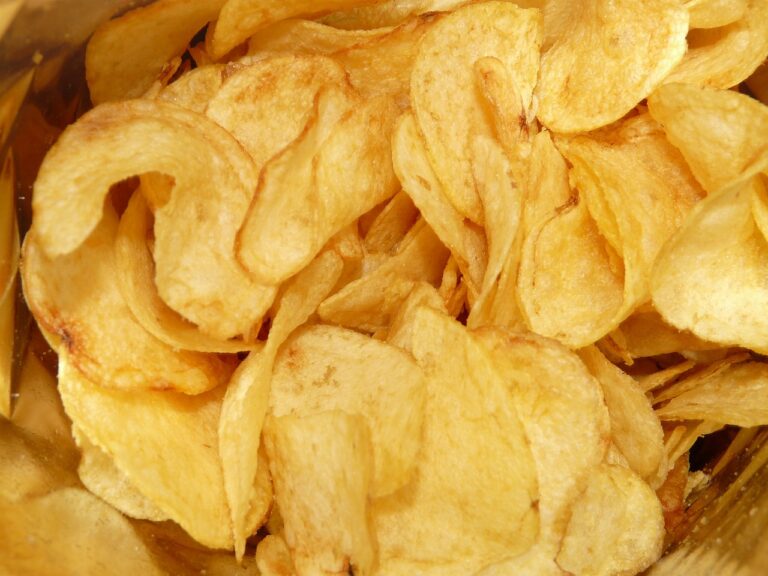Why Am I Craving Acidic Foods?

We’ve all had those moments where we’re suddenly craving a particular type of food. Whether it’s chocolate, chips, or something else entirely, cravings can be both powerful and puzzling.
For those who find themselves often reaching for citrus fruits, vinegar-based dressings, or sour candies, the desire for acidic foods can be particularly strong. But what does this mean? Why do some people have a particular affinity for acidic tastes? Let’s dive deeper into this topic and explore some of the reasons behind these cravings.
Why Am I Craving Acidic Foods?
1. Body’s pH Balance
The human body constantly works to maintain an optimal pH level, which is slightly alkaline. Sometimes, when our body is more alkaline than necessary, we might crave acidic foods to help restore balance.
Certain dietary choices, medications, or health conditions can temporarily alter our body’s pH level. Consuming acidic foods might be the body’s intuitive way of correcting this imbalance. However, it’s essential to remember that excessive intake of acidic foods can lead to other issues like acid reflux or tooth enamel erosion.
2. Vitamin C Deficiency
Acidic foods, especially citrus fruits, are rich in vitamin C. If you’re deficient in this essential vitamin, your body might be signaling a need by creating a craving for acidic foods.
Vitamin C is crucial for various bodily functions, including the maintenance of healthy skin, bones, and blood vessels. A lack of this vitamin can lead to symptoms like fatigue, muscle weakness, and bruising. Consuming vitamin C-rich acidic foods can help address this deficiency.
3. Digestive Aid
Acidic foods can sometimes aid in digestion. The acidity can stimulate the production of stomach acid, which helps break down food more efficiently.
For those who experience sluggish digestion or feelings of fullness after eating, the body might be signaling the need for more stomach acid by craving acidic foods. Consuming these foods in moderation can potentially help, but it’s essential to consult a healthcare professional if digestive issues persist.
4. Pregnancy
It’s common for pregnant women to experience a range of cravings, including a desire for acidic foods. These cravings can be due to hormonal changes or the body’s need for specific nutrients.
During pregnancy, the body undergoes numerous hormonal shifts, which can affect taste preferences. Additionally, acidic foods like oranges might be craved for their vitamin C content, which is essential for both the mother and the developing fetus.
5. Mood and Stress
Our emotional state can have a significant impact on our food choices. For some, acidic foods can offer a temporary mood boost, especially if they’re associated with positive memories or experiences.
Stress can alter our taste preferences, making us lean towards comfort foods. For some, the sharp, tangy taste of acidic foods can be invigorating and uplifting, providing a temporary escape from daily stressors.
6. Cultural or Environmental Influences
The environment and culture you grew up in can shape your food preferences. If you were raised in a setting where acidic foods were prevalent, you might naturally gravitate towards them.
Regions with hot climates often incorporate acidic ingredients in their dishes to help with preservation. Over time, individuals from these areas might develop a natural preference for the tangy and zesty flavors found in their traditional meals.
7. Mineral Deficiencies
Certain mineral deficiencies, like magnesium or potassium, might lead to cravings for acidic foods. These foods, especially citrus fruits, are rich in essential minerals.
A lack of essential minerals in the diet can have various negative effects on the body. Craving acidic foods might be an intuitive way for the body to signal a need for these minerals.
8. Taste Boredom
Sometimes, we crave specific tastes simply because we’re bored with our regular diet. Acidic foods offer a distinct flavor profile that can break the monotony of our meals.
Introducing variety into our diets can enhance our eating experience and ensure we get a broad spectrum of nutrients. Acidic foods can offer that refreshing change we’re seeking.
9. Detoxification
Some believe that acidic foods, particularly lemon or apple cider vinegar, can aid in detoxifying the body. This idea might drive some people to crave and consume these foods.
While the concept of ‘detoxing’ through foods is debated among health professionals, some individuals swear by the benefits of acidic foods in helping to cleanse the system and boost energy levels.
10. Underlying Medical Conditions
Certain medical conditions, like GERD or acid reflux, can sometimes trigger a craving for acidic foods. Paradoxically, while these foods might exacerbate the symptoms of these conditions, some individuals might still find themselves drawn to them.
Always consult a healthcare professional if you believe an underlying medical condition might be causing your cravings. They can provide guidance on dietary choices that can benefit your health.
Body Craving Acidic Foods
When our body craves acidic foods, it might be signaling an imbalance or need. The body’s internal environment, known as its pH balance, is delicately maintained to ensure proper cellular function. At times, our body might be more alkaline than necessary due to various reasons such as certain dietary choices, medications, or health conditions. Craving acidic foods could be an intuitive attempt to restore this balance. Additionally, these cravings might be tied to specific deficiencies. Acidic foods are often rich in essential vitamins and minerals, like Vitamin C and potassium. A consistent desire for them might indicate a need to replenish these vital nutrients.
However, it’s essential to approach these cravings with caution. While the occasional indulgence in acidic foods can be beneficial and satisfy the body’s needs, overconsumption can lead to other complications. Problems such as acid reflux, tooth enamel erosion, and stomach discomfort can arise when there’s excessive intake. It’s always a good idea to monitor one’s diet and consult with a healthcare professional if cravings become persistent or intense.
Craving Acidic Foods During Pregnancy
Pregnancy is a time of tremendous change, both hormonally and physically. One of the most common phenomena that many pregnant women report is a shift in food cravings. The desire for acidic foods can be especially pronounced during this period. Hormonal fluctuations are believed to be a significant factor that influences these changing palate preferences. As the body undergoes numerous hormonal adjustments, this can lead to new taste affinities or aversions.
Additionally, the body’s increased need for specific nutrients during pregnancy might be another reason behind these cravings. For example, Vitamin C, abundantly found in acidic foods like oranges and strawberries, is essential for collagen production, a crucial component in developing fetal tissues. The body might be signaling its need for such nutrients by creating a stronger desire for acidic foods. However, expecting mothers should ensure a balanced intake, as too much acidity might lead to heartburn, a common pregnancy-related discomfort.
Craving Acidic Fruits
Acidic fruits, like citrus varieties, are not only refreshing but also packed with a plethora of nutrients. When we crave these specific fruits, it might be the body’s way of indicating a deficiency in certain vitamins or minerals. Citrus fruits, for example, are loaded with Vitamin C, a vital antioxidant that supports immune function, aids in collagen production, and promotes healthy skin. A sudden urge to eat these fruits might be the body’s way of communicating a need for this essential vitamin.
Another factor could be the sensory experience these fruits provide. The tangy, zesty punch that acidic fruits offer can be stimulating, especially if one’s diet feels monotonous or bland. The invigorating taste can serve as a break from the routine, satisfying both the body’s nutritional needs and our inherent desire for diverse flavors.
Craving Salt and Acidic Foods
Simultaneous cravings for both salty and acidic foods might suggest a deeper physiological or emotional need. Sodium, an essential mineral, plays a critical role in fluid balance, nerve function, and muscle contractions. When combined with the benefits of acidic foods, such as aiding digestion or providing essential vitamins, it’s understandable why some might crave the two together. Foods like pickles or salted citrus fruits can become particularly appealing.
Emotionally, both salt and acidic foods can be tied to comfort or nostalgia. For some, these foods might remind them of home-cooked meals, family gatherings, or cultural traditions. The sensory satisfaction combined with emotional comfort can make these cravings particularly strong. However, it’s essential to ensure moderation, as excessive salt intake can have adverse health effects, such as increased blood pressure.
Why Do I Crave Acidic Drinks?
Acidic drinks, such as citrus-infused water, sodas, or fermented beverages, offer a unique blend of refreshment and flavor stimulation. Craving these drinks might be rooted in the body’s need for hydration with an added flavor twist. Especially in warm climates or after intense physical activity, the body might yearn for something more than plain water to quench its thirst. Acidic drinks can provide that additional layer of sensory satisfaction.
However, it’s also worth considering the emotional and psychological factors behind these cravings. Many people associate specific beverages with memories, relaxation, or social interaction. For instance, sipping on a lemon-infused drink might recall summer vacations or moments of relaxation. As with all cravings, it’s crucial to indulge mindfully. While acidic drinks can be hydrating and satisfying, it’s essential to be cautious about sugar content and potential effects on dental health.
Conclusion
Cravings for acidic foods can arise due to a myriad of reasons, ranging from nutritional needs to emotional factors. Understanding the potential reasons behind these cravings can help individuals make informed dietary choices. If these cravings are persistent or lead to discomfort, it’s essential to consult with a healthcare professional to ensure there’s no underlying health concern.






